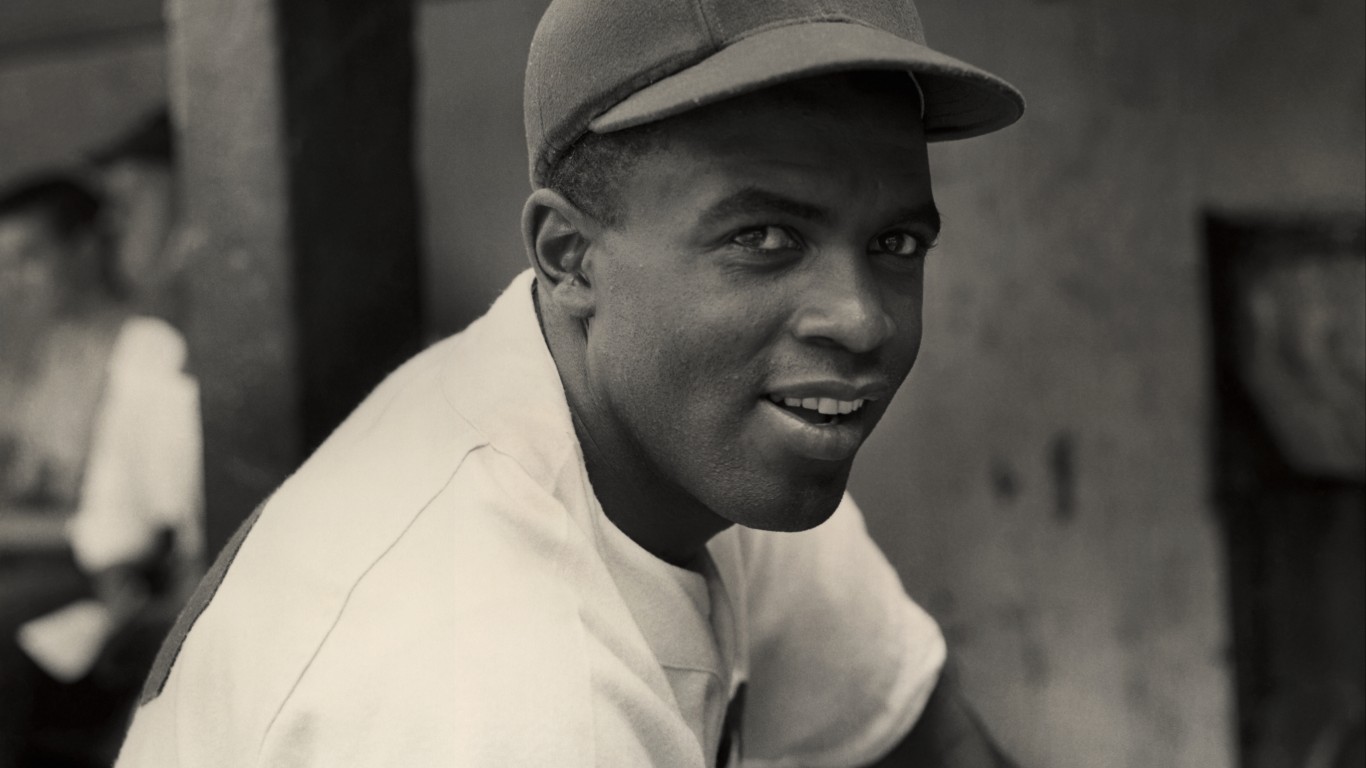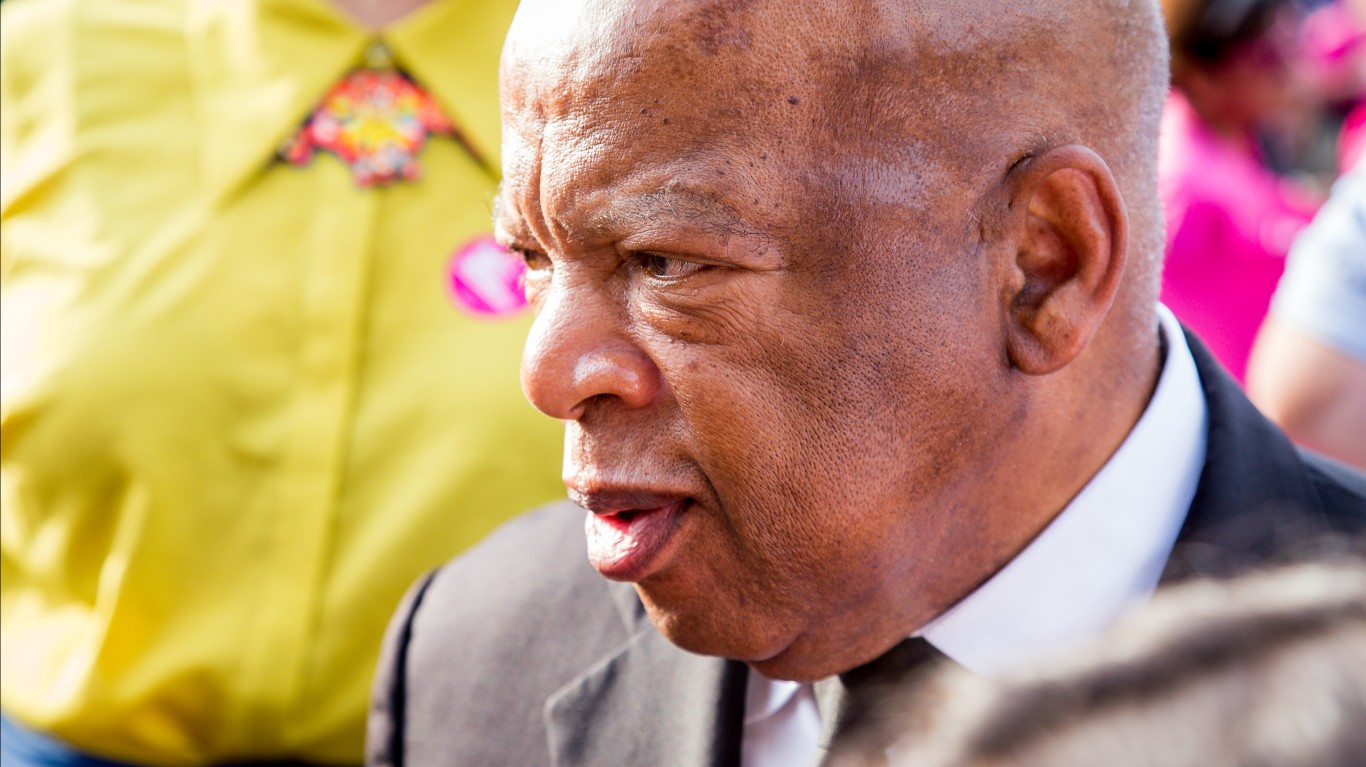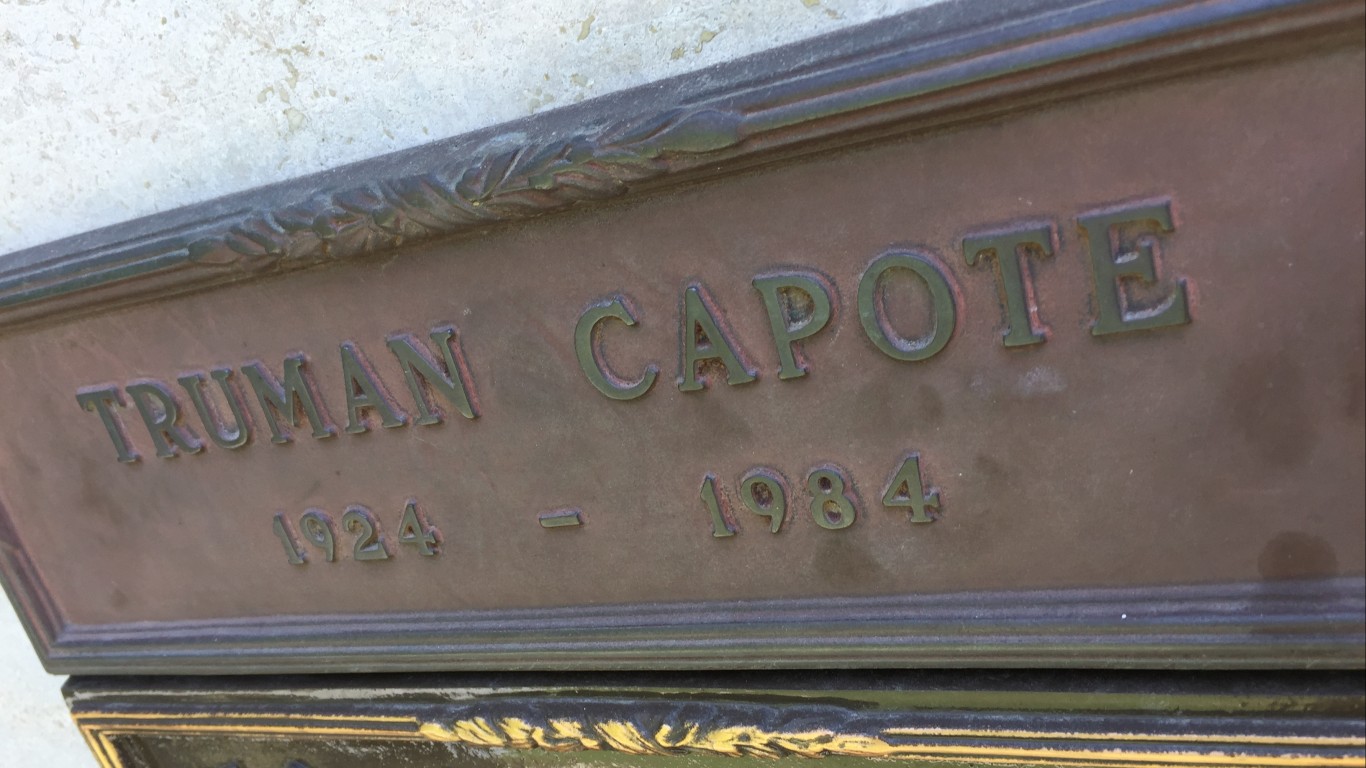After the 9/11 terrorist attacks, the U.S. government created the Department of Homeland Security, and the American public started hearing terms such as “No Fly List” and “terrorist watchlist.” Government surveillance of both foreign nationals and U.S. citizens is nothing new, however, and the FBI has been spying on people and sometimes materially affecting their lives since the agency was created in 1908. Some of the people it has targeted might surprise you.
Using the FBI website and various media sources, 24/7 Tempo has compiled a list of famous people the FBI opened files on – sometimes investigating them, sometimes harassing them, sometimes merely monitoring their activities. (In contrast to these examples of Bureau monitoring of mostly blameless individuals, here are the biggest cases investigated by the FBI.)
We have chosen prominent figures in the political and entertainment worlds, whose presence in the FBI’s databases might surprise you. We have not included noted criminals or terrorists whose presence in FBI files is to be expected. We have also omitted people(officially the Terrorist Screening Database) and/or No Fly List, usually because they have names similar to genuine subjects of concern. Among these are the last Senator Ted Kennedy, who was repeatedly stopped and interrogated, apparently because the name “T. Kennedy” was used by terror suspects.
Chief among the people who attracted FBI interest are those with alleged communist affiliations (Lucille Ball, Charlie Chaplin, Truman Capote) or who participated in anti-war protests (John Lennon, Yoko Ono, John Denver) or civil rights activity (John Lewis, Jackie Robinson, Dr. Martin Luther King Jr.). (These are the greatest speeches of the civil rights movement.)
Among the real head-scratchers on this list are author and disability rights activist Helen Keller (who had lost her sight and hearing as an infant), comedians Abbott and Costello, and “Queen of Soul” Aretha Franklin.
John Lewis
> Watched by the FBI: 1950s-1960s (?), 2004-2008
The late Georgia congressman, a renowned civil rights activist (and outspoken opponent of government surveillance) probably first came to the notice of the FBI in the 1950s or ’60s for his part in the campaign against racial segregation, including his chairmanship of the Student Nonviolent Coordinating Committee and his association with the Southern Christian Leadership Conference. In 2015, he posted a picture of himself on his Facebook page with the caption “Reading the FBI file on SCLC & myself, I am more convinced than ever that we cannot allow government surveillance.” He definitely came to the agency’s attention in 2004, when his name appeared on the No Fly List , apparently referring to another person of the same name. That year, he claimed he had been stopped 35 to 40 times by airport personnel, and despite repeated efforts to have his name removed, it remained on the list until 2008.

Yusuf Islam (aka Cat Stevens)
> Watched by the FBI: 2004
In 2004, Yusuf Islam, also known as singer-songwriter Cat Stevens, was denied entry to the U.S. His flight from London to Washington, D.C. was diverted to Bangor, Maine, so that he could be questioned and detained by Homeland Security officers before being sent back to London and barred from returning to America. A Homeland Security spokesman said that the singer, who had converted to Islam in 1977, had been put on the terrorist watchlist “because of activities that could potentially be related to terrorism” (among other things he had openly approved the Iranian fatwa calling for the murder of author Salman Rushdie). In 2006, he was allowed to come into the country, however, and has had no problems since.
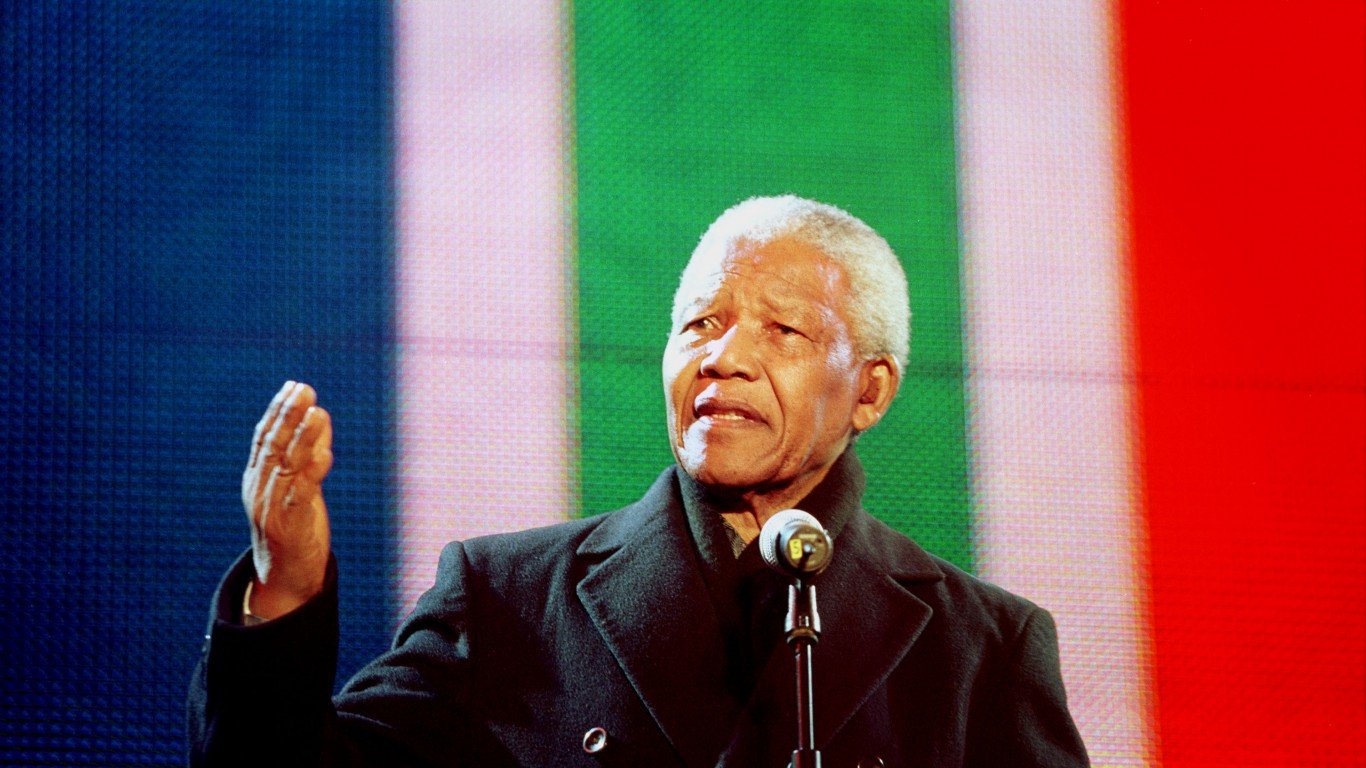
Nelson Mandela
> Watched by the FBI: 1984-2008
During the apartheid era, Mandela was arrested several times and spent 27 years in prison. He was apparently first tagged by the FBI due to support for his freedom from the American Communist Party. Subsequently, his own political party, the African National Congress, was designated as a terrorist organization by the U.S. government because of its use of violence against the South African regime. The FBI was also concerned about the ANC’s connection with communist groups, and monitored Mandela’s meetings with foreign leaders after his release from prison in 1990 and subsequent election as South Africa’s president. Though he had become a respected world leader, his name and that of the ANC stayed on the terrorist watchlist until 2008 – reportedly remaining that long through what the White House called a “bureaucratic snafu.”.
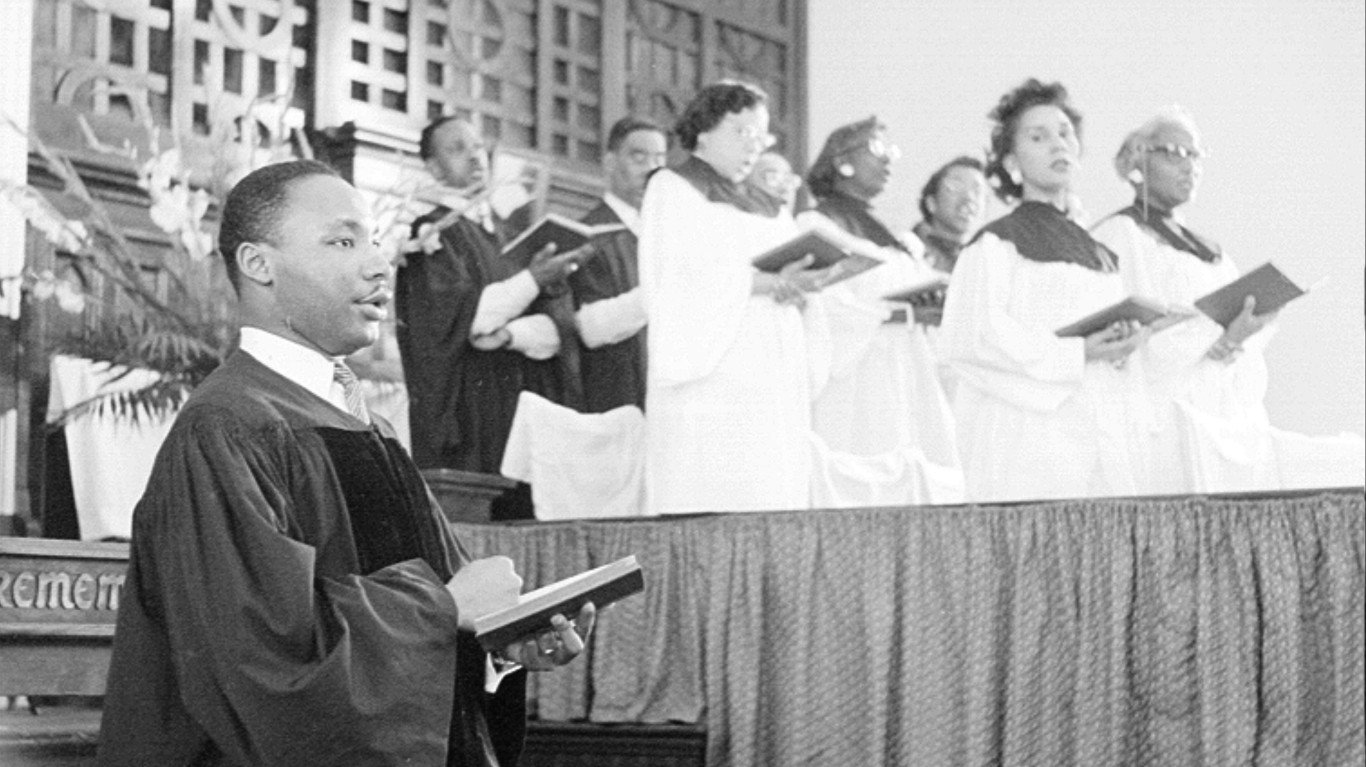
Martin Luther King Jr.
> Watched by the FBI: 1950s-1960s
Dr. King’s activities were closely monitored by the FBI because agency head J. Edgar Hoover viewed him as a state enemy with connections to communists and other subversives. An FBI memo characterized the famed civil rights leader as “the most dangerous and effective Negro leader in the country,” and shortly thereafter, then-Attorney General Robert F. Kennedy authorized the wiretapping of King and other members of the Southern Christian Leadership Conference. The agency went so far as to disseminate rumors about King’s supposed extramarital affairs and even sent him a letter urging him to commit suicide.
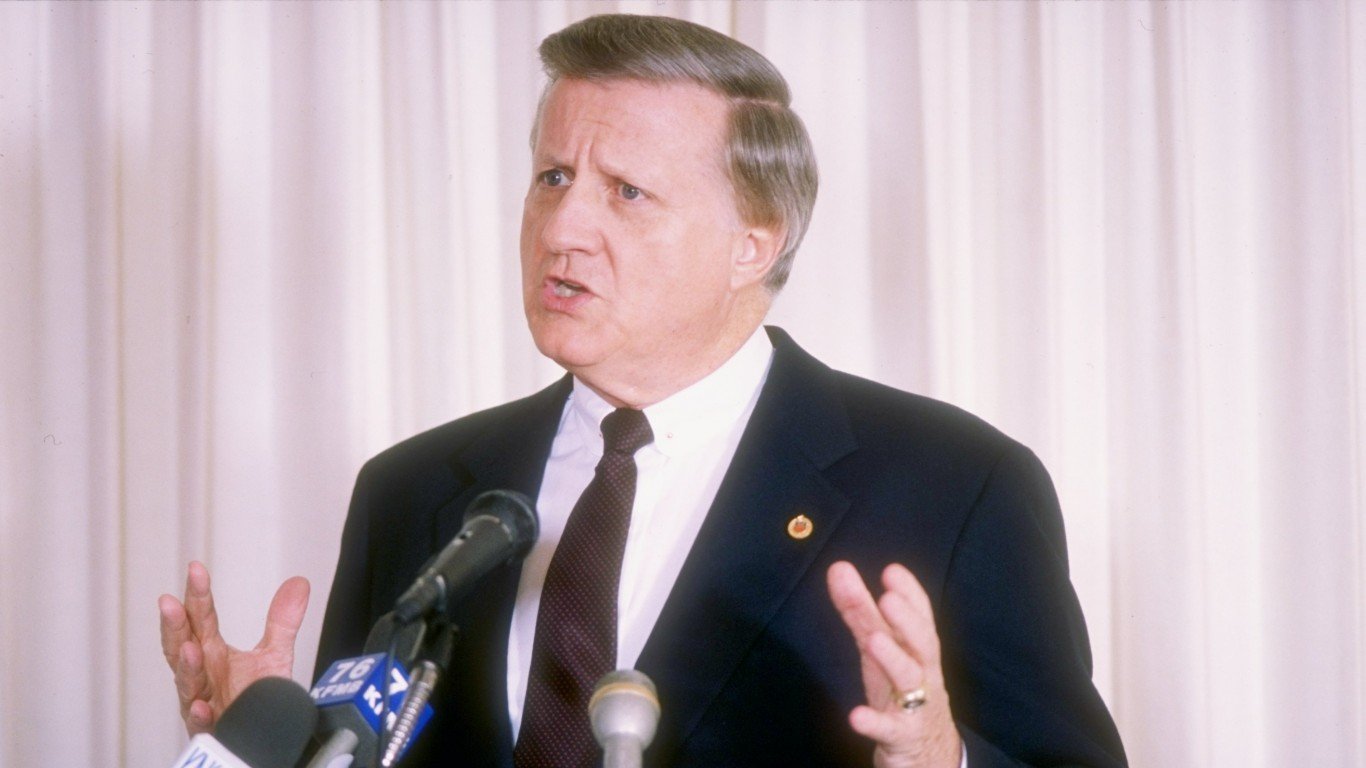
George Steinbrenner
> Watched by the FBI: 1973-1989
George Steinbrenner, the win-obsessed owner of the New York Yankees, had an extensive FBI file dating back to 1973. The file primarily documented Steinbrenner’s illegal contributions to Richard Nixon’s re-election campaign in 1972, though also contained information relating to accusations of possible federal highway fraud in his native Ohio. Nothing came of the fraud letters, but in 1974, Steinbrenner pleaded guilty to making the illegal contributions and also to a felony count of obstruction of justice, and was fined $15,000 (about $110,000 in today’s dollars). Documents released in 2011 revealed that Steinbrenner had subsequently assisted the FBI in two investigations, which may have contributed to Ronald Reagan’s decision to pardon him in 1989.

John Denver
> Watched by the FBI: 1977-1990
As an example of how little it takes to spark the interest of the FBI, the Bureau compiled a 32-page file on the beloved soft-rock singer because of his participation in a 1971 anti-war rally and other similar activities and his recurring drug use – even though the heavily redacted file states that Denver “has not been the subject of an investigation by the FBI and our central files contain no pertinent information concerning him.” The file, however, also includes 17 death threats he received in 1979 from a German-speaking woman, who said that her mother’s boyfriend was coming to America to kill Denver.
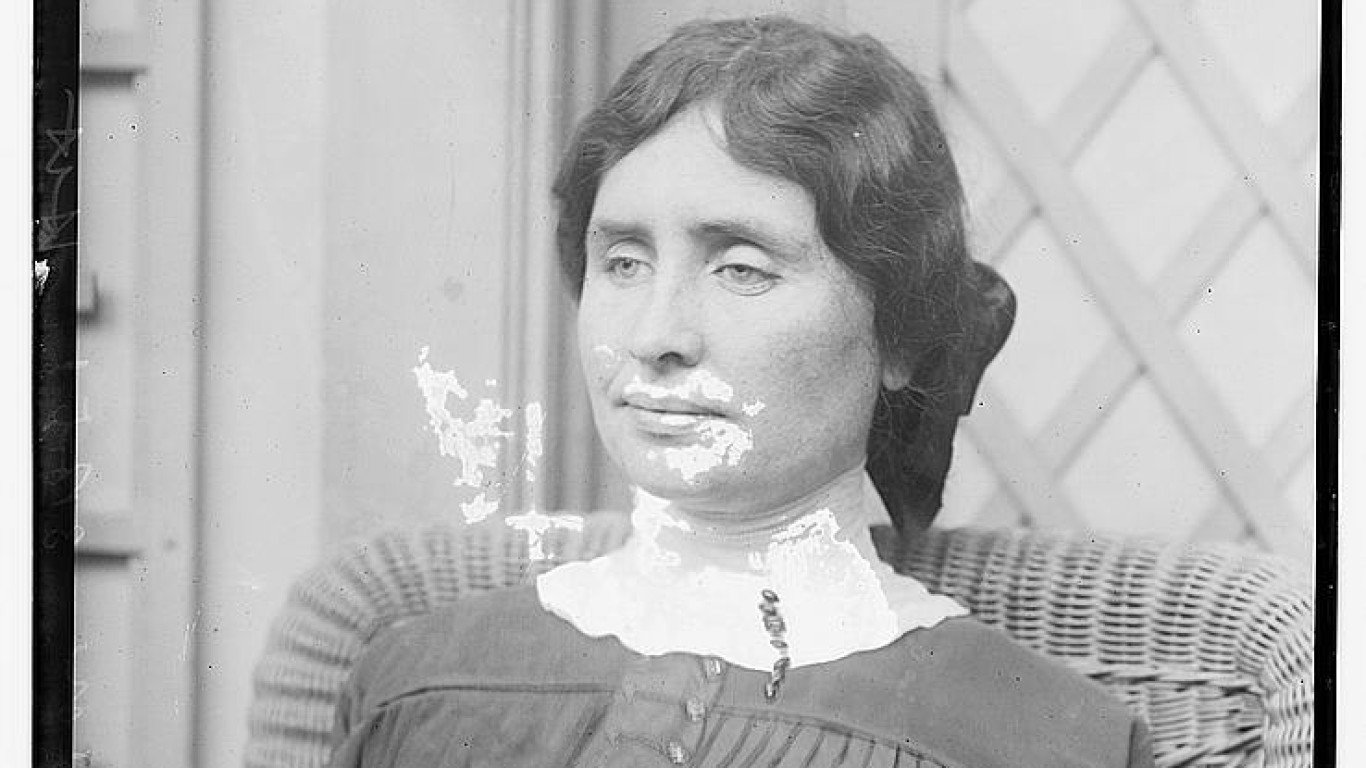
Helen Keller
> Watched by the FBI: 1930s-1950s
Keller, renowned as an author, social critic, disability rights activist, and the first deaf and blind person to earn a bachelor’s degree, initially attracted the FBI’s attention in the 1930s. Though a Bureau memo dated July 1, 1953, noted that “the FBI has not conducted an investigation with regard to Helen Adams Keller,” the Feds went on to document Keller’s attendance at, and support of, numerous socialist and communist conferences and meetings, as well as her collegial relations with noted radical leaders. She was also a member of the Socialist Party, an open opponent of President Woodrow Wilson, a strong supporter of birth control, and a co-founder of the American Civil Liberties Union – all of which made her suspect in the eyes of FBI chief J. Edgar Hoover.
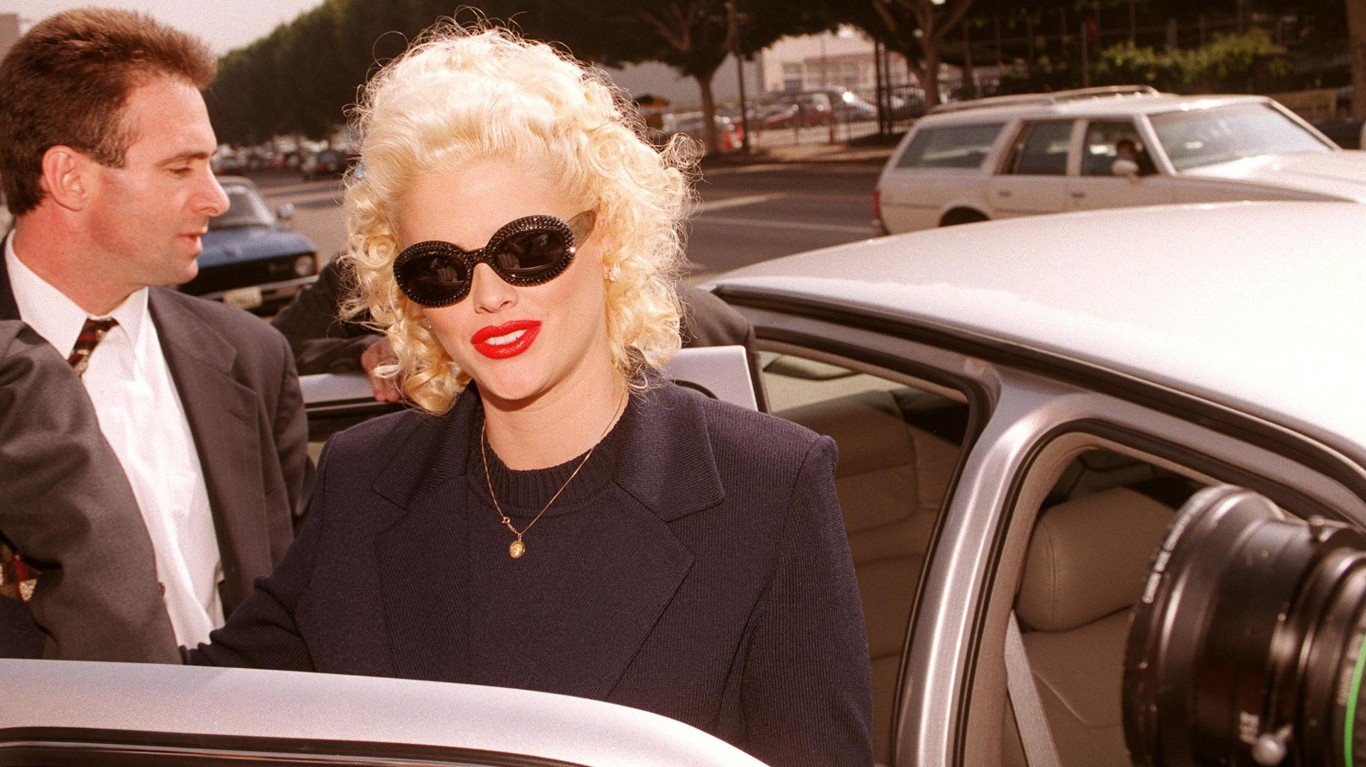
Anna Nicole Smith
> Watched by the FBI: 2000-2001
Model, Playboy Playmate, and actress Smith was investigated by the FBI in 2000-2001 amid suspicions of her involvement in a murder-for-hire plot to kill E. Pierce Marshall, son of her late husband, oil tycoon J. Howard Marshall II. The investigation arose from their legal battle over Smith’s claim that she had been verbally promised half of the tycoon’s estate. Despite the probe, insufficient evidence led to the decision not to charge Smith – who had married the 86-year-old Marshall when she was 24, just over a year before his death. Smith also came to the FBI’s attention in 2004 when she and her attorney received anonymous death threats.
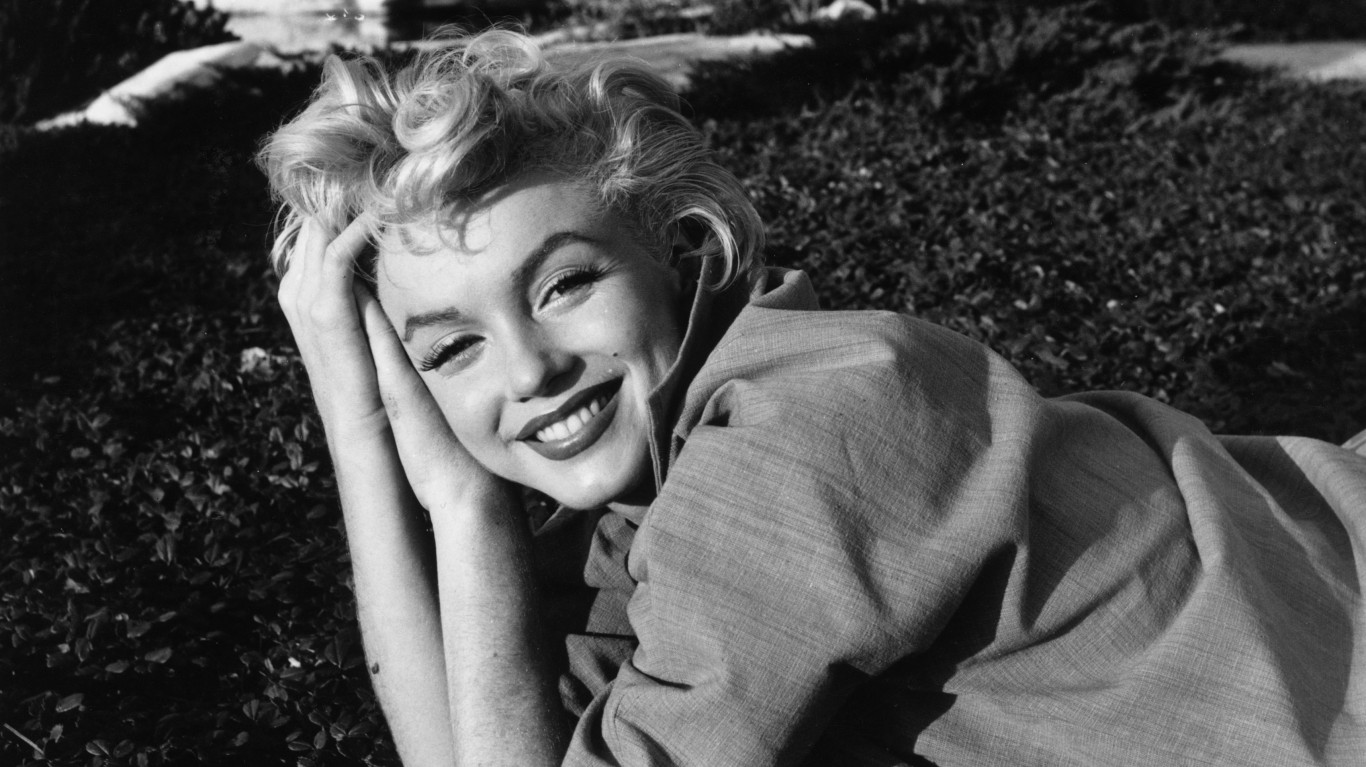
Marilyn Monroe
> Watched by the FBI: 1956-1961
The screen icon and 1950s sex symbol attracted the notice of the FBI when she was in the process of divorcing baseball slugger Joe DiMaggio, and having an affair with playwright Arthur Miller. Miller had been involved with various organizations identified as communist fronts, and was called before the House Un-American Activities Committee – where he refused to name names. When Monroe’s studio, 20th Century Fox, told her that she should end the relationship with Miller, she refused, which led to the FBI opening a file on her. The fact that she applied for a visa to visit the Soviet Union, and that she had been seen with other known or suspected communists – including a Life Magazine photographer who was a party member – didn’t help.
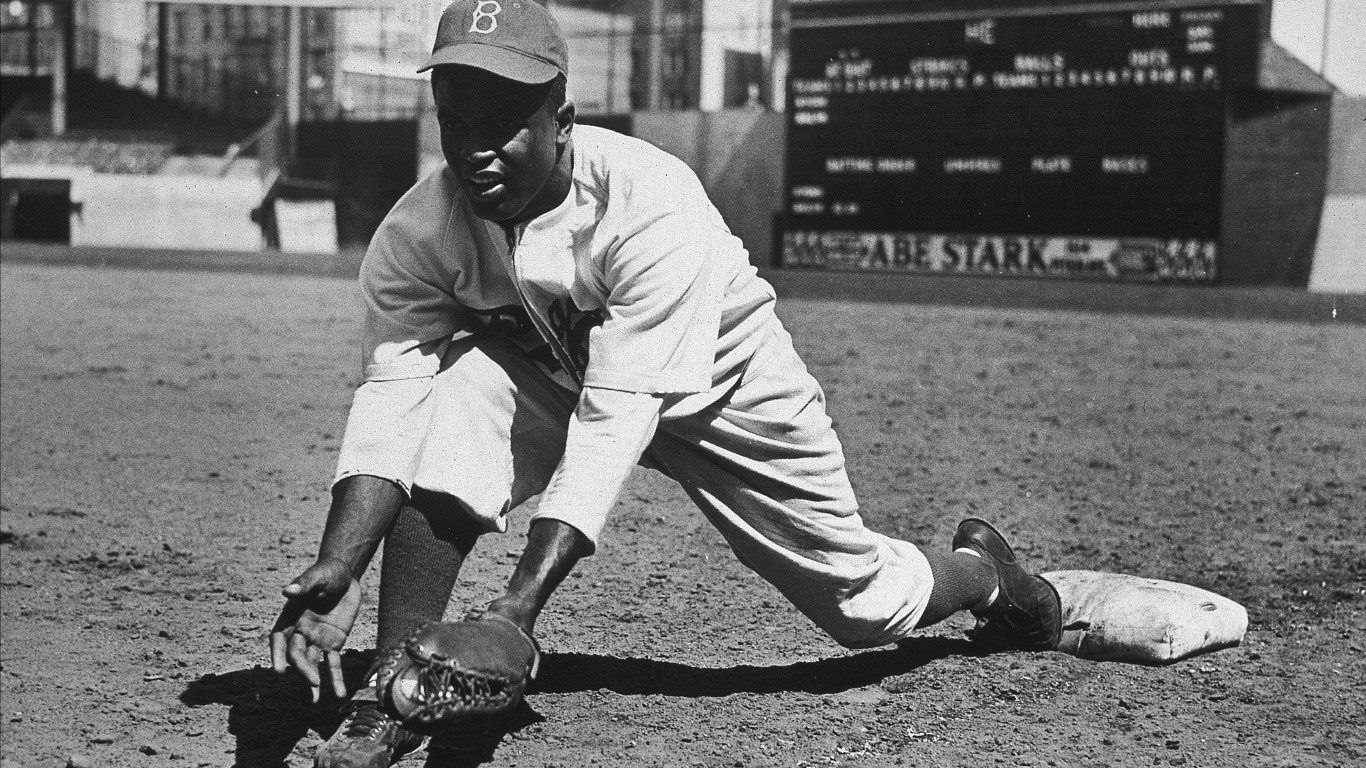
Jackie Robinson
> Watched by the FBI: 1946-1972
FBI interest in this revered athlete, who broke Major League Baseball’s racial barrier when he joined the Brooklyn Dodgers in 1947, dated from 1946, after he’d signed a minor league contract with the team. An Agency memo at the time noted that he’d accepted chairmanship of a veterans’ group – he’d served in WWII in the segregated 761st Tank Battalion – that had been called a communist front. FBI interest in him intensified as Robinson became increasingly involved in the civil rights movement, and his association with the International Workers Order in Harlem, the NAACP, and the left-leaning Highlander Folk School in Tennessee, among other organizations, was noted in Agency files – though he never became the subject of an FBI investigation.
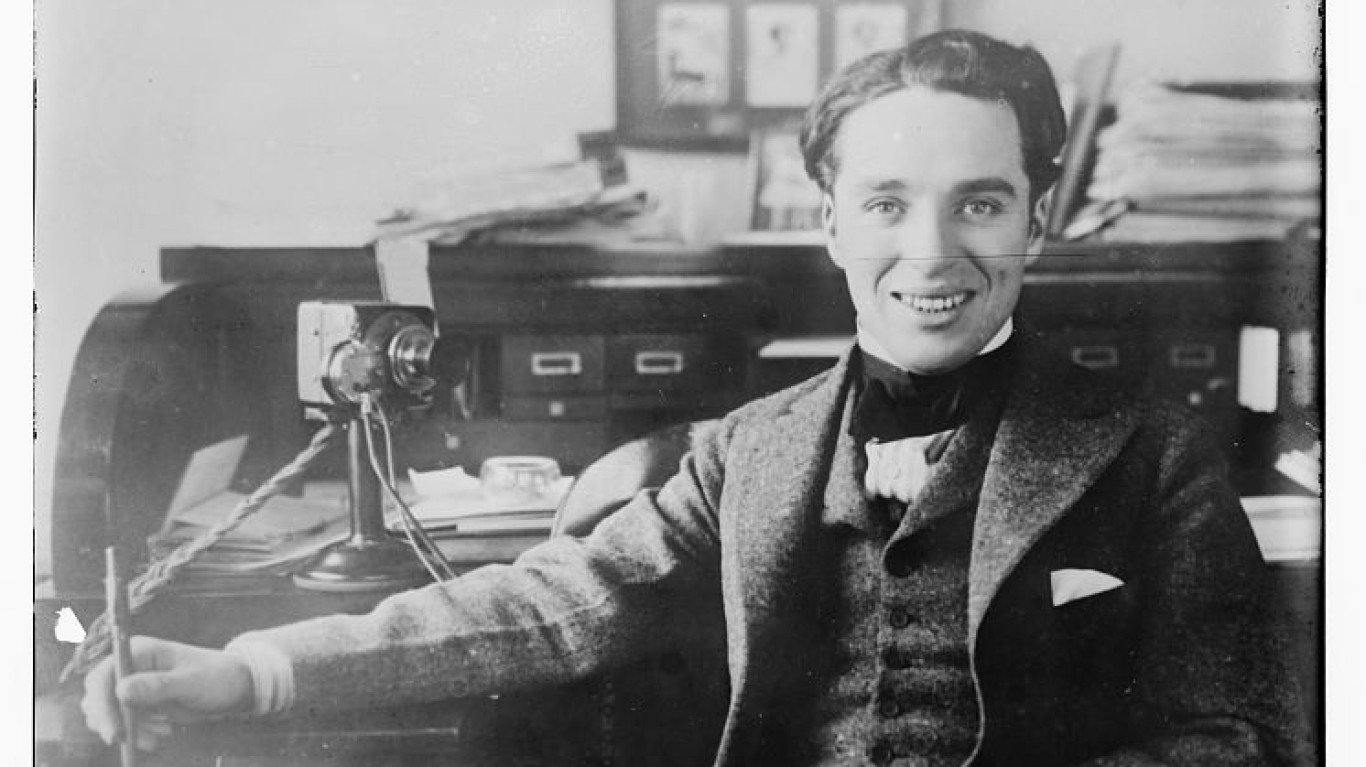
Charlie Chaplin
> Watched by the FBI: 1922-1978
The great silent film comedian, actor, and director initially came to the attention of the FBI not for any political activities but because he was considered to be of low moral character. He was suspected of violating the White Slave Traffic Act involving interstate prostitution for paying to bring his girlfriend across state lines, and had also begun an affair with Lita Grey, who was to become his second wife, when he was 35 and she was 15. Subsequently, a domestic security investigation was opened into his alleged ties to the American Communist Party, though an FBI agent in Los Angeles wrote “No witnesses available to testify affirmatively that Chaplin has been member CP in past….” In 1952, he was refused reentry into the U.S after a trip to Europe, leading him to move permanently to Switzerland. He returned to America only in 1972, when he was given an honorary Oscar by the Academy of Motion Picture Arts and Sciences – and a 12-minute standing ovation at the ceremony.
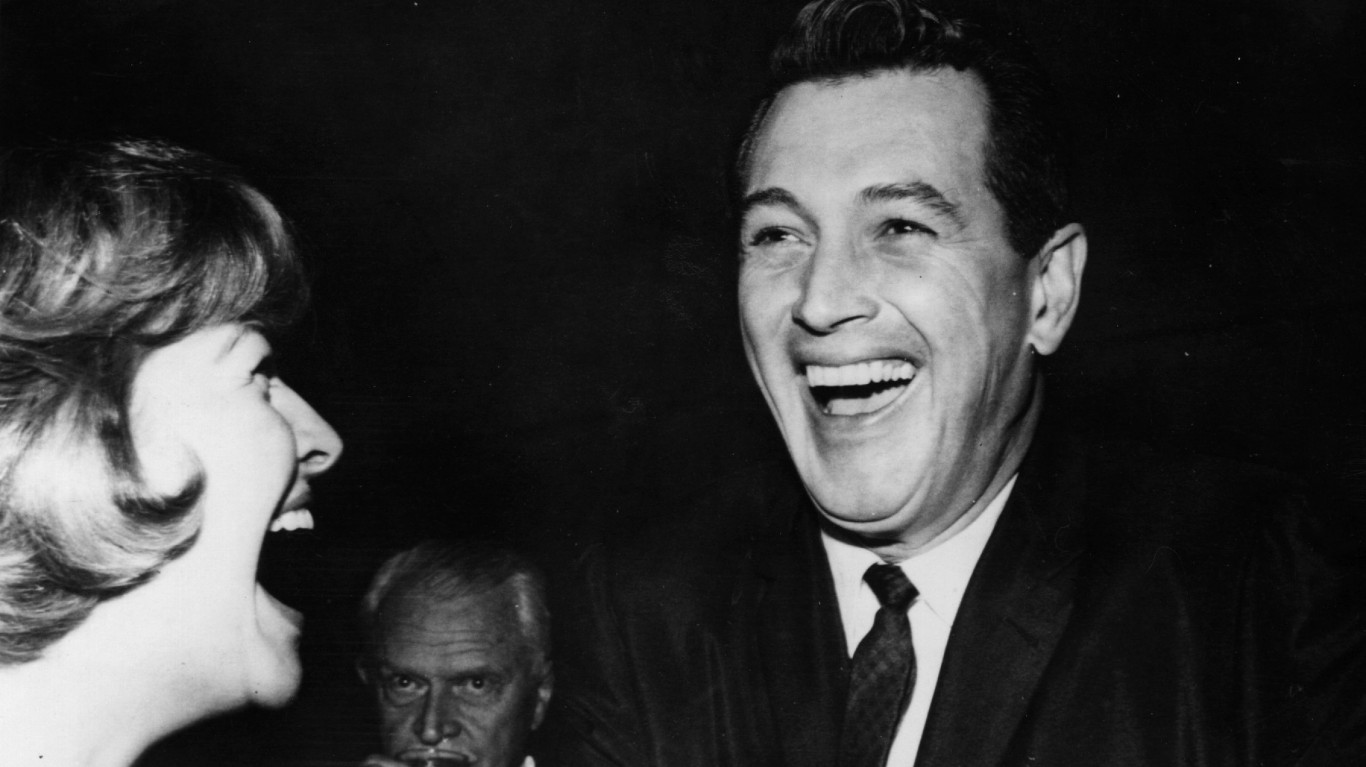
Rock Hudson
> Watched by the FBI: 1965-1967
In 1965, the FBI opened a file on Hudson, the handsome Hollywood leading man renowned for his roles in “Pillow Talk,” “Giant,” and other films, following allegations that he had (as one Agency memo put it) “homosexual tendencies” – at a time when homosexuality was highly stigmatized and a public acknowledgement that he was gay would have torpedoed Hudson’s film career. The Agency became concerned again in 1967 when it was reported that Hudson was to star as an FBI agent – couldn’t have a gay man playing a Feeb – in a movie called “The Quiet Couple” (released in 1968 as “A Fine Pair,” with Hudson playing not a Bureau agent but an NYPD captain).
Truman Capote
> Watched by the FBI: 1960
Unlike actor Rock Hudson’s file, the one maintained by the FBI on author Capote (“Breakfast at Tiffany’s,” “In Cold Blood”) didn’t concern his sexual identity, though he was gay. It was over his involvement with the Fair Play for Cuba Committee, an activist group supporting the Cuban Revolution and opposing U.S. intervention, such as the Bay of Pigs invasion. (Capote was born Truman Persons and renamed Truman Capote when his stepfather – a Spaniard who owned property in Cuba – adopted him.) Other literary figures, including Norman Mailer and Gore Vidal, were apologists for the Castro regime at the same time.
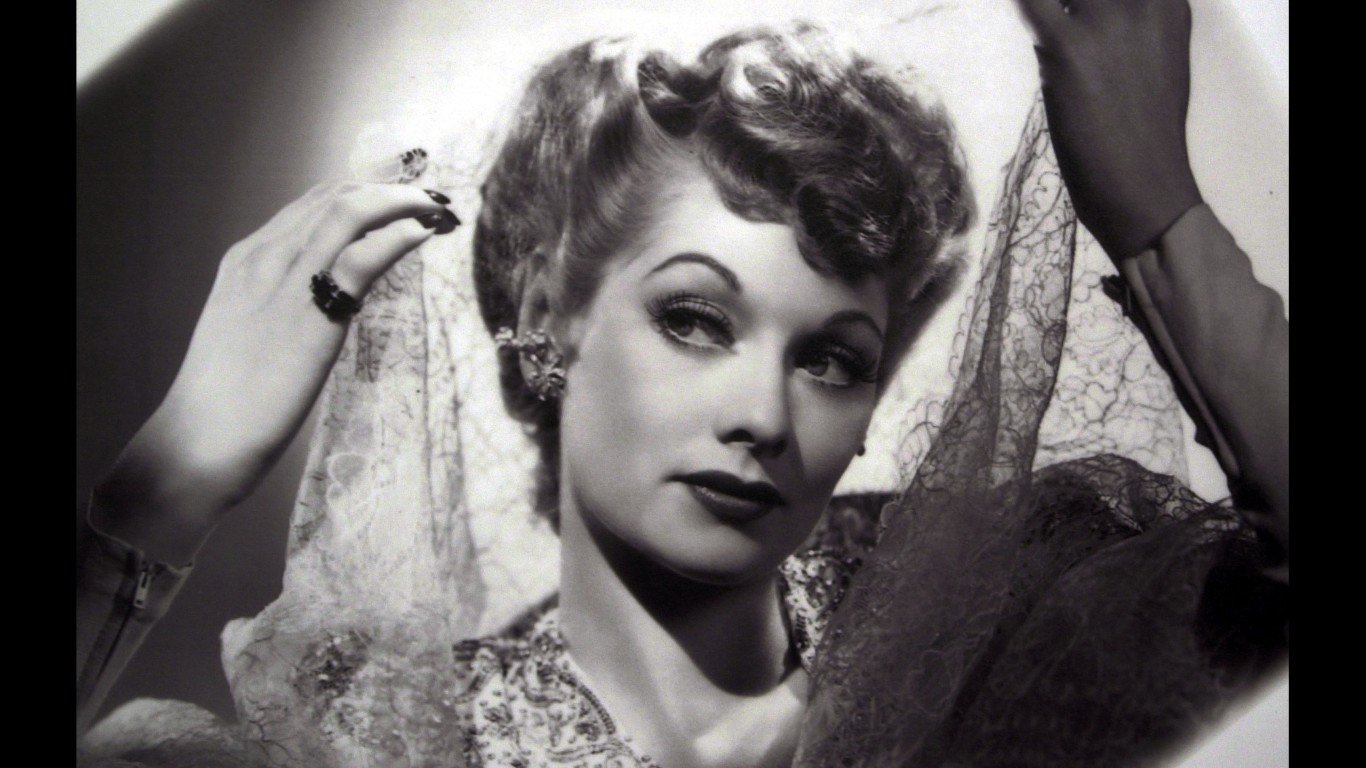
Lucille Ball
> Watched by the FBI: 1956
In 1956, during the McCarthy Era “red scare,” comedian and television comedy pioneer Lucille Ball came under scrutiny by the FBI due to fact that she had registered to vote as a Communist Party member in 1936 – at her socialist grandfather’s request, she later said – and was appointed to be a delegate to the party’s State Central Committee, apparently without her knowledge. In 1953, she gave sealed testimony to the House Un-American Activities Committee, stating that she had never actually intended to vote communist. Despite a 156-page file on her, the FBI decided not to include Ball in its “security index” as they found no evidence to suggest she was a threat to national security. At the time, her Cuban-born husband and comedy foil Desi Arnaz told gossip columnist Hedda Hopper that “The only thing red about Lucy is her hair, and even that is not legitimate.”
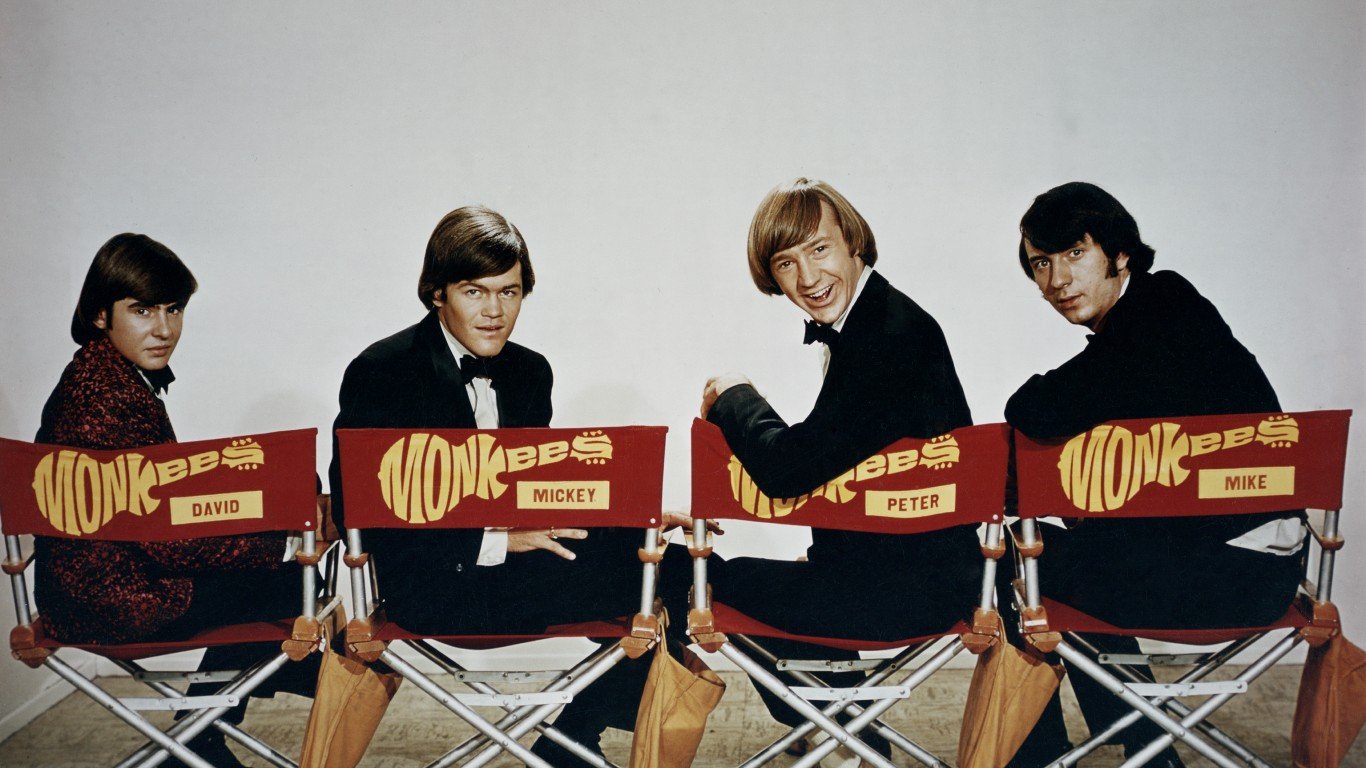
The Monkees
> Watched by the FBI: Late 1960s
Originally a fictional Beatles-inspired pop band created for a 1966 TV show of the same name, The Monkees – Peter Tork, Micky Dolenz, Michael Nesmith, and Davy Jones – went on to become a successful real band, scoring hits like “I’m a Believer” and “Last Train to Clarksville.” The FBI, however, trained its attention on them due to their “activities denouncing the U.S. policy in the war in Vietnam” – including projecting images and messages protesting the war and supporting civil rights, which the Agency called “left wing innovations of a political nature,” during a 1967 concert. Dolenz, the last surviving member of the band, filed suit late last year “to obtain any records the FBI created and/or possesses on the Monkees as well as its individual members.”
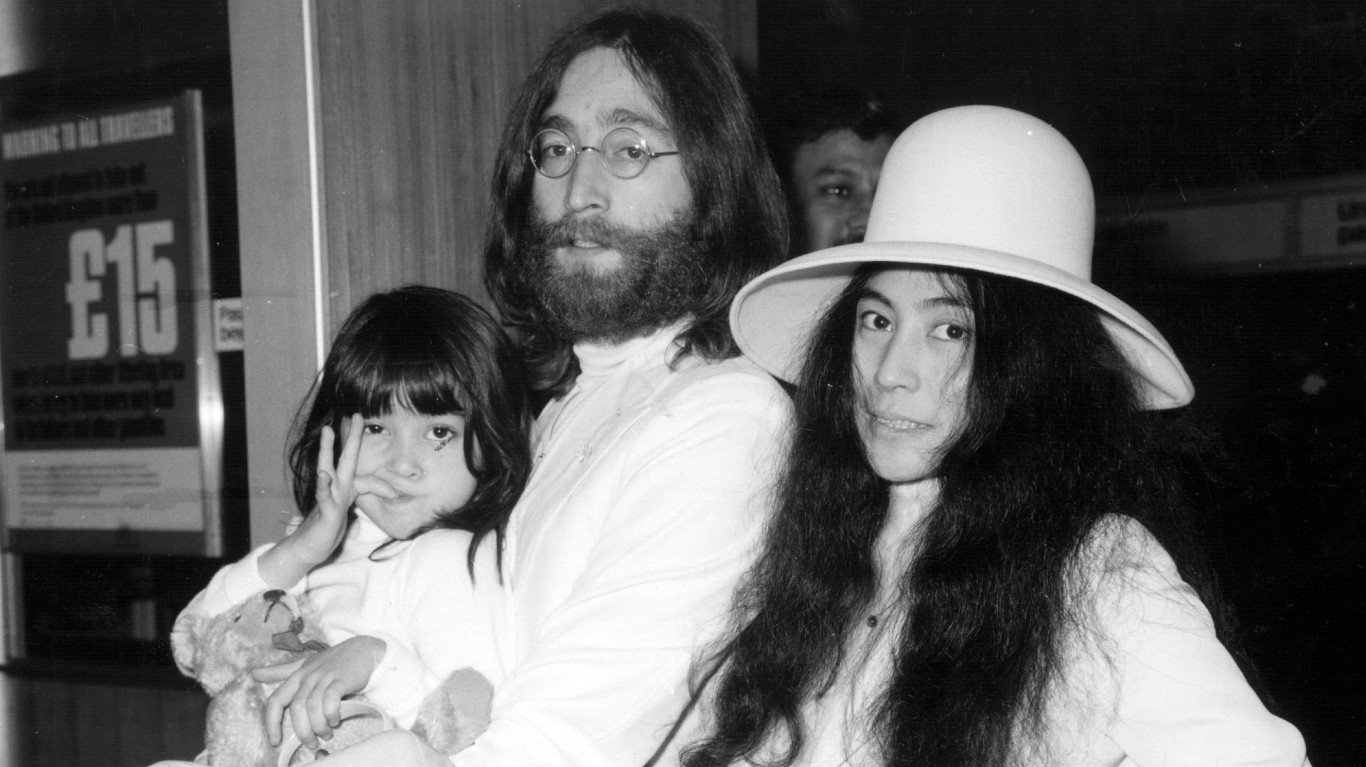
John Lennon and Yoko Ono
> Watched by the FBI: 1971-1972
The FBI conducted extensive surveillance on Lennon and Ono in the early ’70s. They were outspoken anti-war activists – “peaceniks,” as they called themselves – and had also allied themselves with noted American leftists, among other things donating $75,000 to the Election Year Strategy Information Center, a New Left initiative co-founded by Rennie Davis, later one of the so-called Chicago Seven. The Bureau was apparently especially worried because the legal voting age had recently been lowered from 21 to 18, and they feared that the appeal of Lennon and The Beatles would influence the young to vote against Richard Nixon. Agents openly followed the two and tapped their phones, hoping to find evidence that would allow them to have the couple deported.
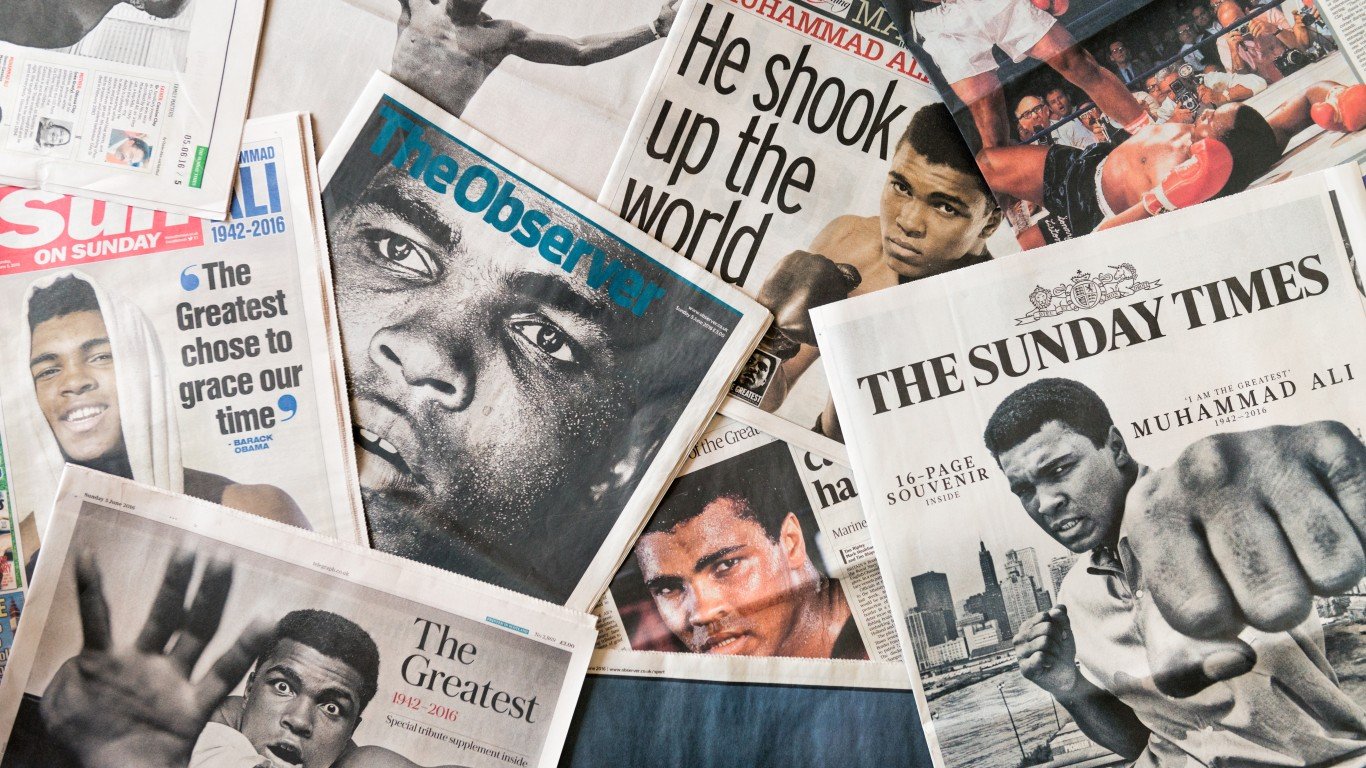
Muhammad Ali
> Watched by the FBI: 1964-1967
The first time the FBI paid attention to Ali, he was still fighting under his “slave name” (as he called it), Cassius Clay. The Agency suspected that a Las Vegas gambler with ties to organized crime had fixed the February 1964 bout between Clay and Sonny Liston – though they were unable to find any indication that Clay was involved (he became Muhammad Ali the following month). In 1966, the FBI opened a file on him – under the name Cassius Clay – due to his association with the Nation of Islam, a Black nationalist group. In 1967, after he refused to be inducted into the armed forces, Ali became a target of the National Security Agency’s Project Minaret, a domestic spying program shared with the FBI, along with Dr. Martin Luther King Jr., Senator Frank Church, and other anti-war protestors. In 1971, while much of the nation was diverted by the spectacle of the Muhammad Ali-Joe Frazier “Fight of the Century,” an activist group broke into a Bureau office in Pennsylvania, stealing countless files revealing illegal operations J. Edgar Hoover had authorized against a wide range of Americans. Among the materials were Ali’s grade school records.
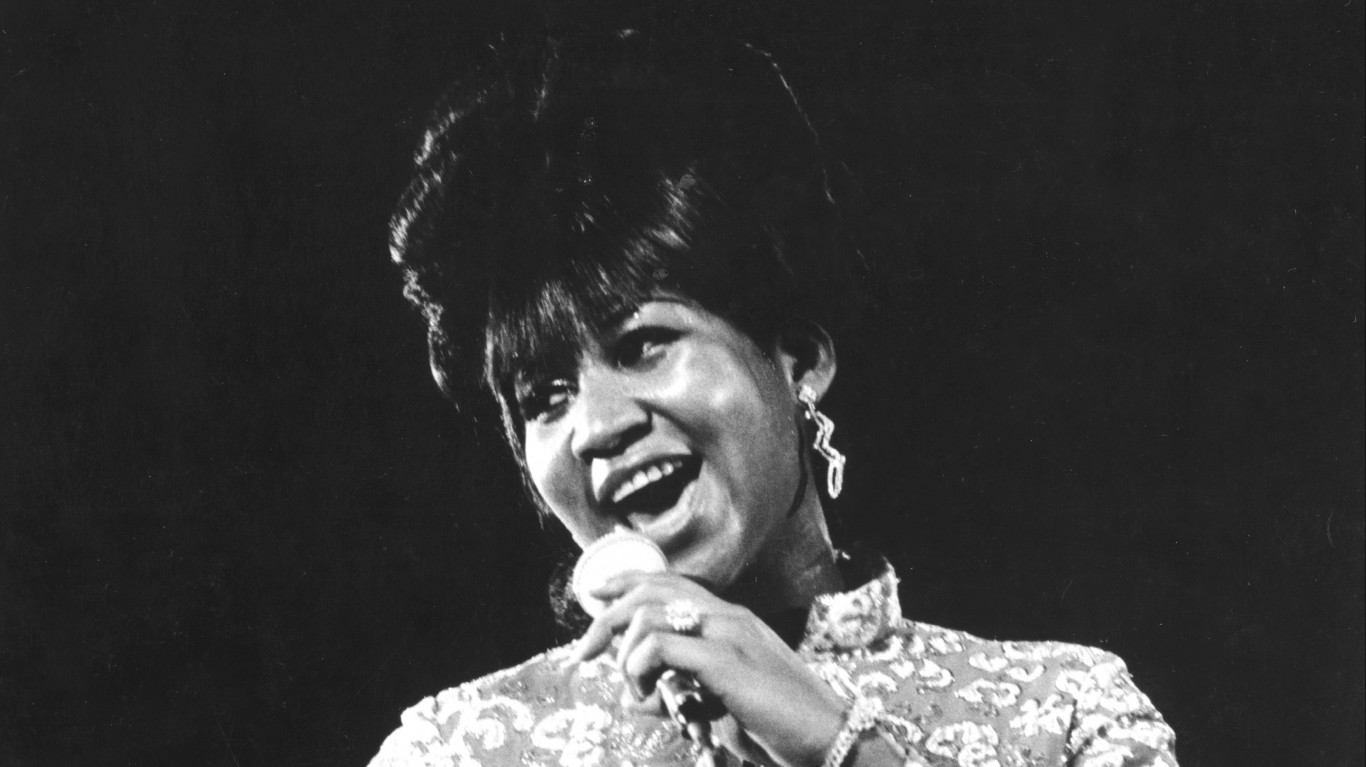
Aretha Franklin
> Watched by the FBI: 1967-2007
Like so many other prominent Black figures, the Queen of Soul came under FBI scrutiny primarily for her association with civil rights activities. Though she was never the subject of a formal investigation by the Bureau, the Feds monitored her activities closely, showing particular interest in her support for imprisoned Black communist educator Angela Davis and her association with Dr. Martin Luther King Jr. and other civil rights activists. In 1971, an agent even placed “a suitable pretext telephone call” in an attempt to link Franklin or her father to the Black Panther Party. Later entries in the singer’s file concern death threats she received.
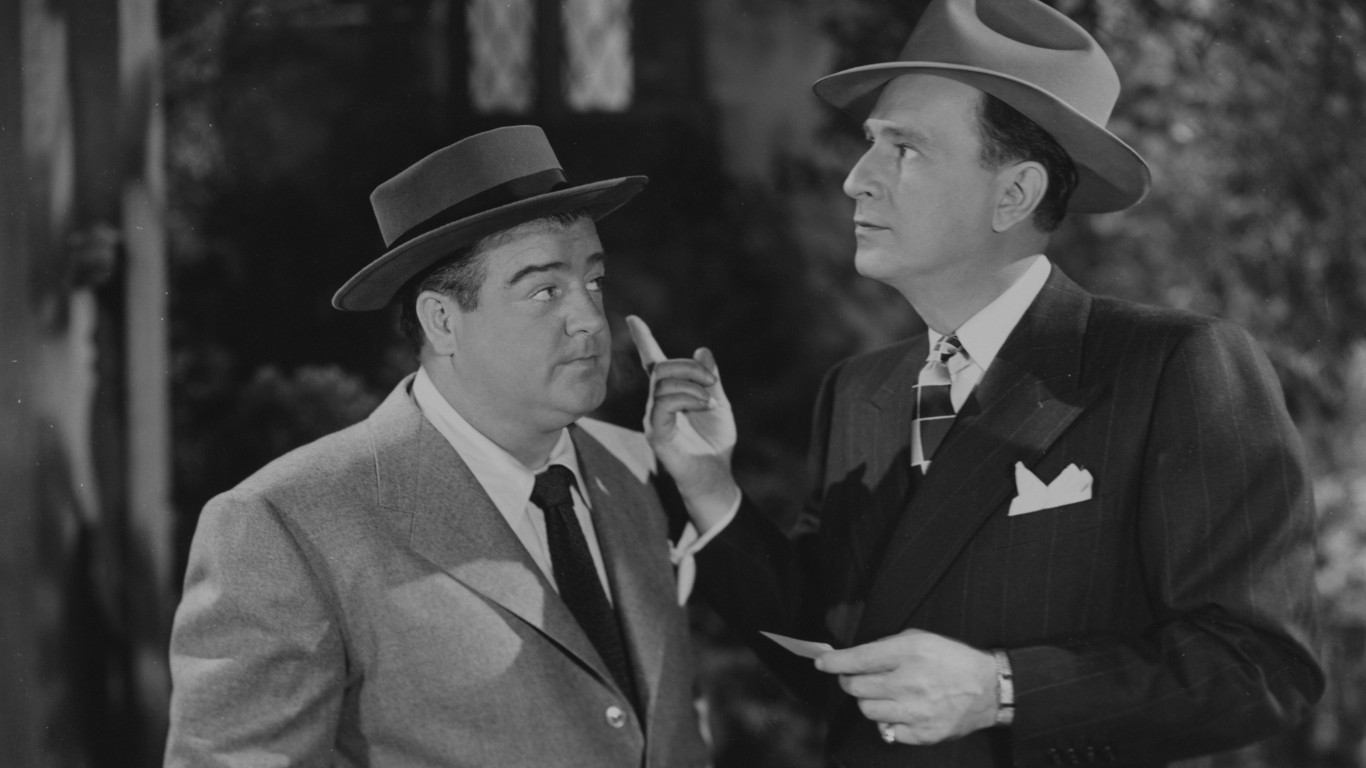
Abbott and Costello
> Watched by the FBI: 1944-1948
The renowned comedy duo of Bud Abbott and Lou Costello, best-known for their classic routine “Who’s on First?” and at one point said to have been the highest-paid entertainers on earth, ran afoul of the FBI not for political reasons but because J. Edgar Hoover was cracking down on pornography. According to an LAPD report shared with the Bureau, Abbott allegedly had about 1,500 reels of dirty movies, which he showed at home to friends. There is no FBI file on Abbott, but there is one for Costello, accusing him, too, of having a library of obscene films. Costello was also said to have hired prostitutes to “put on a lewd performance” after one of the duo’s movie premiers.
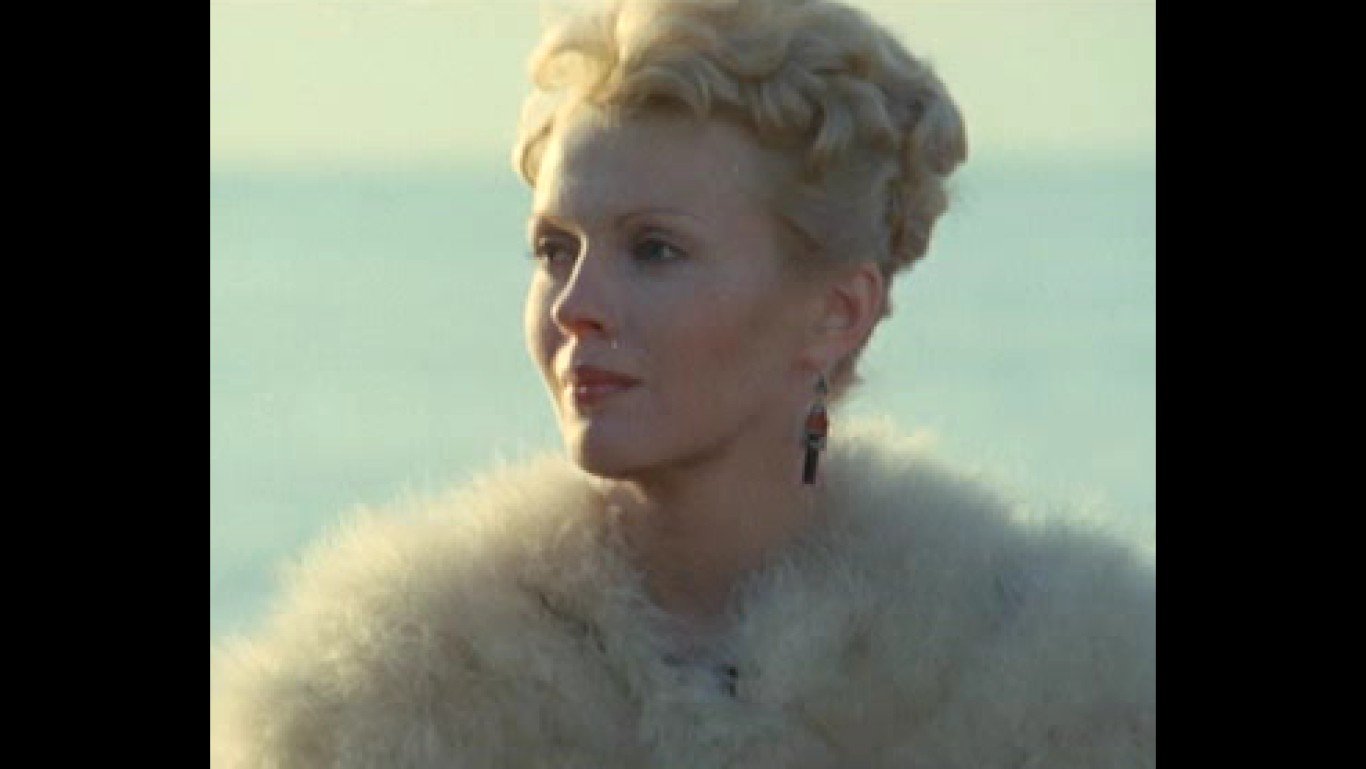
Jean Seberg
> Watched by the FBI: 1968-1979
One of most egregious examples of FBI overreach involves actress Seberg, who became a French New Wave icon starring opposite Jean-Paul Belmondo in Jean-Luc Godard’s first feature, “Breathless,” and made such Hollywood films as “St. Joan,” “Paint Your Wagon,” and “Airport.” Seberg was active in civil rights and Native American rights groups, and donated to the Black Panther Party, among other perceived sins. The Bureau responded by hounding her for years through its COINTELPRO domestic spying program with the aim of embarrassing and ultimately “neutralizing” her. In 1970, they planted a false story that a Black Panther member and not her French author husband, Romain Gary, had fathered the child she was carrying. She gave birth prematurely, perhaps due to the stress of the situation, and the baby died. Gary later said that she had developed mental problems because of the COINTELPRO rumor and had tried to kill herself several times on the anniversary of her baby’s death. She died in 1979, an apparent suicide.
